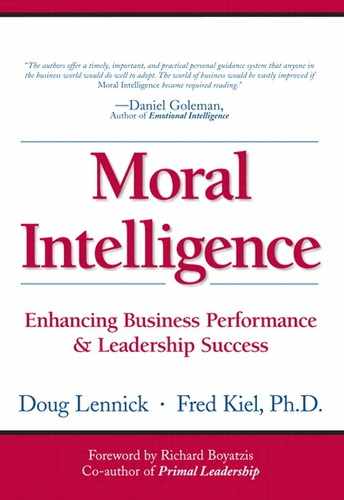Part Two: Developing Moral Skills
Universal principles show up everywhere. They turn up in speeches and sermons and scoldings; they are chiseled into monuments. We know they sound good, but what do they really require of us? Exactly what are we supposed to do to live in alignment with principles? Fortunately, we “know it when we see it,”—we recognize when someone is acting in concert with an important principle. A colleague follows up with us when she said she would. A team member owns up to a costly mistake. A boss gives us some well-deserved “constructive” feedback and then goes on to treat us as cordially and respectfully as before. But it's a challenge to bring those lofty principles down to the level of day-to-day life. It's our moral competence that makes our principles concrete. Moral competence, as we've said, is actually a collection of competencies. Each is related to one of the four universal principles that we have found are key to effective leadership—integrity, responsibility, compassion, and forgiveness (see Table PII.1). In this section, we explore the competencies associated with each principle. We also discuss another kind of moral skill—the emotional competencies that help us in our efforts to maintain alignment. Though we will discuss each competency in turn, keep in mind that in the real world, individual moral competencies and emotional competencies are interwoven. Like a master artist who simultaneously uses all his talents—including brush technique, composition, color perception—to create a work of art, the best leaders seamlessly blend all of their competencies to create their personal and organizational masterpieces.

